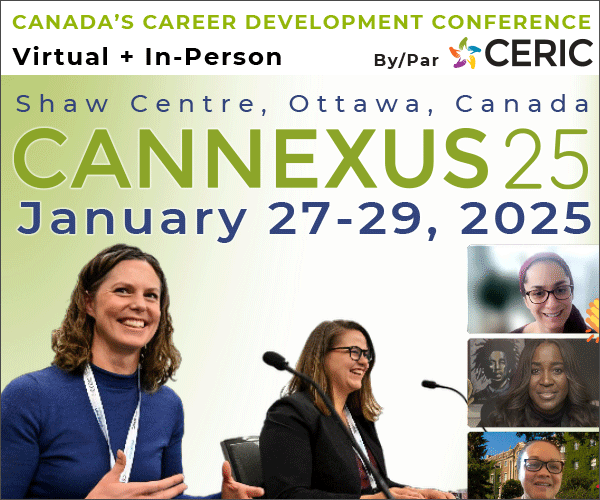Managing Emergent Knowledge: Addressing the Competency Expectations of Biomedical Employers
Keywords:
Employers, Graduate students, BiomedicalAbstract
Biomedical graduate students face an uncertain job market. A significant number of these graduates are sub or un-employed and work in areas not requiring a university degree. For those graduates experiencing this, feeling they have no control over their careers, future sub-employment has become a significant contributor to the rise in mental illness among this cohort (Frank & Hou, 2018). The government of Alberta has begun to communicate expectations that university education and training should be tied to labor market expectations, so this study surveyed and interviewed 92 biomedical hiring managers in western Canada. When asked which non-technical skills they felt graduate degree holders typically are missing, 85 percent of respondents indicated that project management and/or customer engagement were the skills that were lacking in recent graduate students in this field of study. The responses received from these leaders in the Biomedical field who were surveyed suggest that a skills awareness gap is preventing employers from understanding the full value of graduates because these graduates do not articulate the professional skills that they gain in graduate school throughout the hiring process or demonstrate their competencies in the workplace. Accordingly, these shortfalls can be addressed by introducing project management and knowledge translation awareness into curricula. Demand for project management expertise is rising in the biomedical field. Greater awareness and exposure to project management and customer engagement through knowledge translation will help prepare students for the transition into their professional field of work, while also making them more productive in their educational program. Likewise, stakeholder (i.e., customers) interaction such as students presenting their research to stakeholders can promote knowledge translation while introducing students to potential employers earlier in their training.
References
Bok, D. C. (2017). The struggle to reform our colleges. Princeton, NJ: Princeton University Press.
Bentley University (2014). The prepared U project: An in-depth look at millennial preparedness for today’s workforce [SlideShare]. Retrieved from https://www.slideshare.net/BentleyU/prepared-u-project-on-millennial-preparedness
Craig, R., & Markowitz, T. (2017). The Skills Gap Is Actually An Awareness Gap -- And It’s Easier To Fix. Retrieved from https://www.forbes.com/sites/ryancraig/2017/03/17/the-skills-gap-is-actually-an-awareness-gap-and-its-easier-to-fix/#f17699d3ff4a
Dreher, D. (2019) Why do so many college students have anxiety disorders?. Retrieved from https://www.psychologytoday.com/ca/blog/your-personal-renaissance/201903/why-do-so-many-college-students-have-anxiety-disorders
Gomory, R. E. (1989). From the 'ladder of science' to the product development cycle. Scout for technology, design for manufacture, shorten the time to market. Harvard Business Review, 67, 99-105.
Graham, I. D., Logan, J., Harrison, M. B., Straus, S. E., Tetroe, J., Caswell, W., Robinson, N. (2006). Lost in knowledge translation: Time for a map? Journal of Continuing Education in the Health Profession, 26, 13–24.
Hart Research Association (2015). Falling Short? College Learning and Career Success [PDF file]. Retrieved from https://www.aacu.org/leap/public-opinion-research/2015-survey-results
Hidalgo, E. S. (2019). Adapting the scrum framework for agile project management in science: case study of a distributed research initiative. Heliyon 5: e01447.
Khazragui, H., & Hudson, J. (2015). Measuring the benefits of university research: impact and the REF in UK. Research Evaluation, 24, 51-62.
Moore, T., & Morton, J. (2017). The myth of job readiness? Written communication, employability, and the ‘skills gap’ in higher education, Studies in Higher Education, 42: 591-609.
Project Management Institute (2017). Project Management Job Growth and Talent Gap Report 2017-2027 [PDF file]. Retrieved from https://www.pmi.org/-/media/pmi/documents/public/pdf/ learning/job-growth-report.pdf?sc_lang_temp=en
Statistics Canada (2018). Employment Income Statistics (4), Work Activity During the Reference Year (5), Occupation - National Occupational Classification (NOC) 2016 (193A), Major Field of Study - Classification of Instructional Programs (CIP) 2016 (43), Highest Certificate, Diploma or Degree (15), Age (4D) and Sex (3) for the Population Aged 15 Years and Over in Private Households of Canada, 2016 Census - 25% Sample Data. 2016 Census Population. Retrieved from https://www150.statcan.gc.ca/n1/en/catalogue/98-400-X2016271
Takwe, Y. F., & Sagsan, M. (2011). Tacit to Tacit Knowledge Transfer within the Informal Environment of Higher Education [PDF file]. Retrieved from https://www.academia.edu/ 19727422/Tacit_To_Tacit_Knowledge_Transfer_within_the_Informal_Environment_Of_Higher_Education_A_Case_Study_On_TRNC_s_Academia
Taleb, N. N. (2018) Skin in the Game: Hidden Asymmetries in Daily Life. Manhattan, NY: Penguin Random House. 68
Wyatt, K., Carter, M., Mahtani, V., Barnard, A., Hawton, A., Britten, N. (2008). The impact of consumer involvement in research: an evaluation of consumer involvement in the London Primary Care Studies Programme. Family Practice, 25, 154-61.

Downloads
Published
How to Cite
Issue
Section
License
Copyright (c) 2020 CANADIAN JOURNAL OF CAREER DEVELOPMENT

This work is licensed under a Creative Commons Attribution-NonCommercial-NoDerivatives 4.0 International License.














